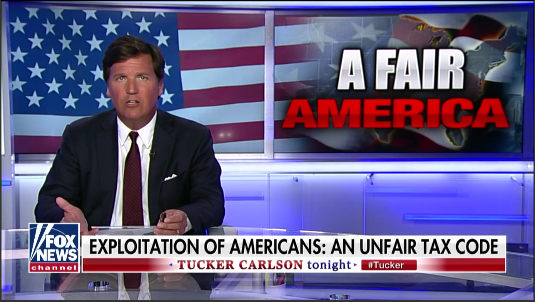In a sort of conservative manifesto, Tucker Carlson laid out a defense of the family and critique of market capitalism in his January 2 monologue:
In it, he makes some great points about the family:
Thirty years ago, conservatives looked at Detroit or Newark and many other places and were horrified by what they saw. Conventional families had all but disappeared in poor neighborhoods. The majority of children were born out of wedlock. Single mothers were the rule. Crime and drugs and disorder became universal.
What caused this nightmare? Liberals didn’t even want to acknowledge the question. They were benefiting from the disaster, in the form of reliable votes. Conservatives, though, had a ready explanation for inner-city dysfunction and it made sense: big government. Decades of badly-designed social programs had driven fathers from the home and created what conservatives called a “culture of poverty” that trapped people in generational decline.
He then goes on to claim that big government wasn’t the entire problem because, “virtually the same thing has happened decades later to an entirely different population.” He says that rural America is being decimated in the same way that urban America was decades ago and he blames it on market economics:
Manufacturing, a male-dominated industry, all but disappeared over the course of a generation. All that remained in many places were the schools and the hospitals, both traditional employers of women. In many places, women suddenly made more than men.
Now, before you applaud this as a victory for feminism, consider the effects. Study after study has shown that when men make less than women, women generally don’t want to marry them. Maybe they should want to marry them, but they don’t. Over big populations, this causes a drop in marriage, a spike in out-of-wedlock births, and all the familiar disasters that inevitably follow — more drug and alcohol abuse, higher incarceration rates, fewer families formed in the next generation.
He may be on to something here, but it’s unclear that a market economy is to blame. Welfare is highest per capita in some rural areas now, which perversely incentivizes whites there just as much as blacks in the inner city.
He then makes a bold claim referring to market capitalism:
Our system was created by human beings for the benefit of human beings. We do not exist to serve markets. Just the opposite. Any economic system that weakens and destroys families is not worth having. A system like that is the enemy of a healthy society.
But what if the collapse of the rural American economy was based on government-sponsored protectionist policies and unionized pay? And instead of focusing on the feminist persistence of women in the workforce, Carlson focuses on freedom as the problem.
He acknowledges that socialism is a failure but fails to understand that that’s exactly what he’s advocating by looking to government to ensure a certain standard of living. As JSB Morse wrote, “Making universal prosperity a right is the surest way to universal poverty,” and to follow Carlson’s thought process, the surest way to break up the family.
 The Libertarian Catholic
The Libertarian Catholic
















